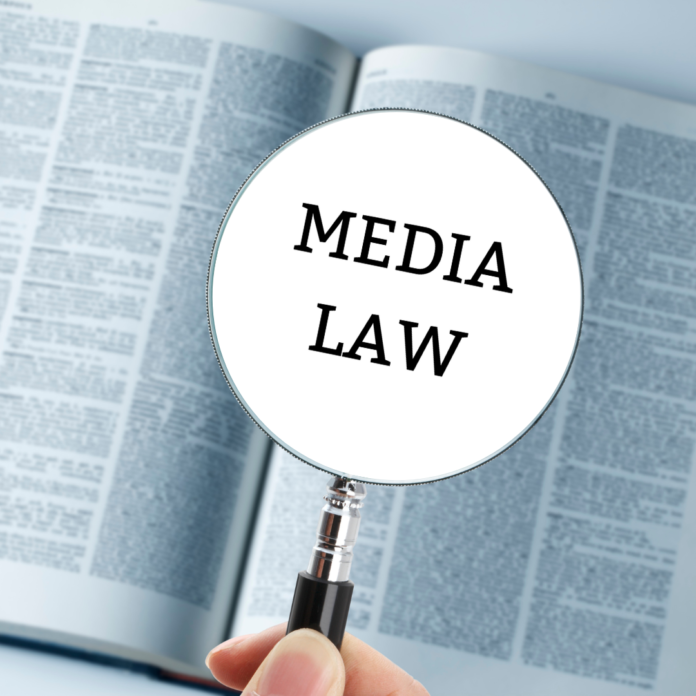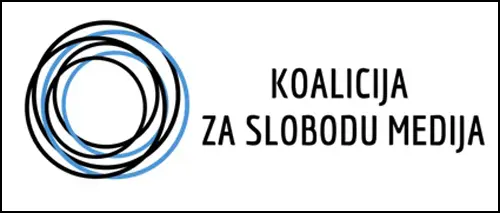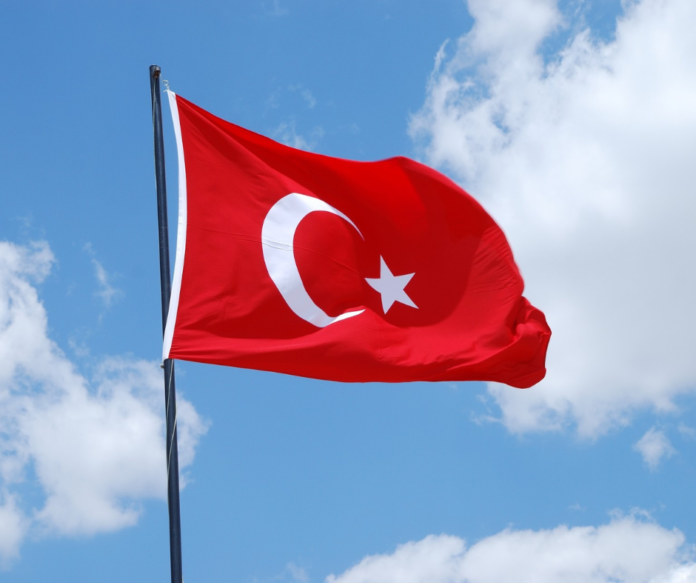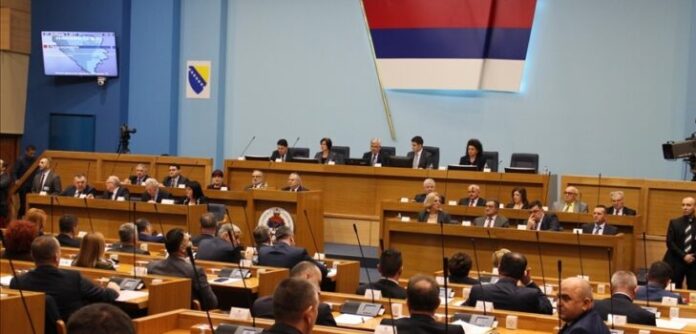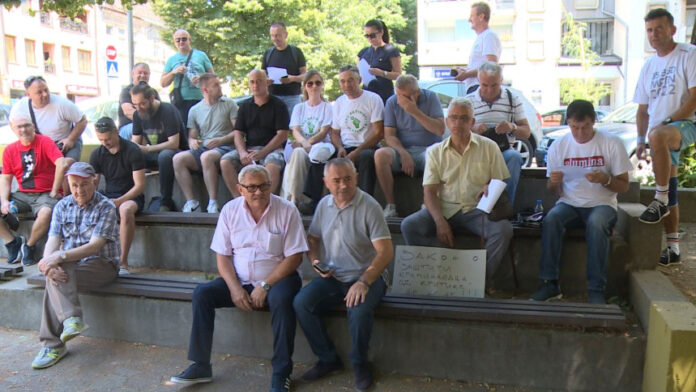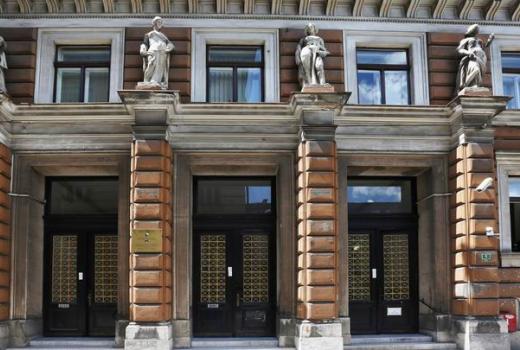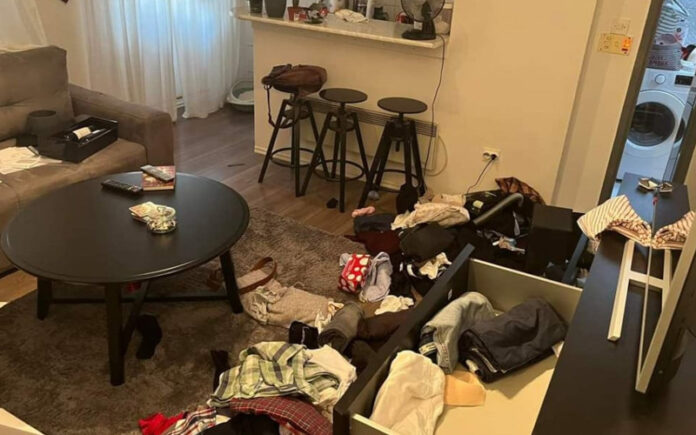The Croatian Journalists’ Association (CJA) sent a response to the Ministry of Culture and Media regarding the draft of the new Media Act, which was delivered to them on July 5. The CJA deemed the draft entirely unacceptable. The letter addressed to Minister of Culture and Media, Nina Obuljen Koržinek, is presented in its entirety below.
Dear Minister of Culture and Media, Ms. Obuljen Koržinek,
I am writing to inform you that the proposed draft of the Media Act which the Ministry of Culture and Media provided to the Croatian Journalists’ Association as a working version on July 5, 2023, is wholly unacceptable. Its adoption would significantly hinder media freedom and the position of journalists and journalism in Croatia. Regrettably, we note that the Croatian government’s proposal completely disregards the fact that the European Commission also recognizes journalism as a public good in its proposal for the European Media Freedom Act.
For the CJA, it is unacceptable that, 18 months after CJA submitted its suggestions for the existing Media Act, the Ministry offered us a document that was not discussed in the working group meeting, nor were there any consultations or agreements on the comprehensive Media Act. We received a text that neither embodies the core principles and concepts that empower press freedom nor upholds the constitutionally guaranteed freedom of the media.
This text, which is also inconsistent in quality and elaboration, lacking clear implementation mechanisms and occasionally contradictory, raises several serious objections. In this letter, we wish to highlight the key issues it raises with the intention of its legalization.
- The CJA is particularly concerned about the tendency to legalize censorship through provisions concerning the publication of journalistic content, which grants publishers the right to arbitrarily and without any justification withhold the publication of journalistic content, disregarding the fundamental principles of journalistic profession. We interpret this provision as introduction of direct censorship and an unprecedented legal allowance for publishers to interfere with: 1) editorial independence and 2) journalistic freedom.
The proposed provision would violate journalistic freedoms even if it stated that instead of publishers, the editor is not obliged to publish a journalistic content without explanation. The Croatian government has gone even further by fundamentally altering the meanings of the words “editor” and “journalist,” and this change is made in the worst possible sense.
The existing rules regarding the duties and obligations of publishers, editors, and journalists, especially those relating to press freedoms, are defined in international and domestic documents of the journalistic profession, such as the Declaration of the International Federation of Journalists and the Code of Ethics of Croatian Journalists. These standards can be found in all editorial statutes of Croatian media, as well as in the (existing) national legislation. The role of the state is to legislate in a manner that guarantees freedom of speech with (justifiable) restrictions while being cautious not to interfere with the competencies of editors and journalists. This completely undermines the institution of media statutes, which govern the relationships between publishers and the editorial staff, the selection of chief editors through the voting of all journalists and editors, and the regulation of mutual relations – introduced by the state precisely to enable free journalism and incentivized with a reduced VAT rate for printed media.
According to universally accepted norms (embedded in professional regulations, editorial statutes, acts, etc.) that have been present since the existence of free journalism, there is a clear division between publishers, editors, and journalists. Simplified, the publisher sets the basic editorial orientation and the corresponding program based on the respect of ethical and professional norms of journalism. The chief editor independently creates the editorial policy and is accountable to the publisher for its implementation and realization. The journalist, on the other hand, performs journalistic work, respecting the rules of the journalistic profession. In this job description and responsibility framework, according to numerous editorial statutes, the editor has the right not to publish certain media content but also the obligation to explain to the journalist the reasons for such decision. In those rare cases when a justified explanation is required for such a drastic move, the journalist has other editorial mechanisms to question such decisions (e.g., editorial council).
By the new proposal, where the publisher is not obliged to publish journalistic content, the fundamental ethical and professional principles of journalism, which clearly distinguish the publisher from the editorial team, are invalidated. The government’s new proposal would not only allow the publisher to co-create the daily editorial policy – which would already be an unacceptable interference in editorial autonomy – but would also grant them the right to make editorial decisions without any regard for the chief editor and the editorial team.
In accordance with most editorial statutes in Croatia, editors are elected by the majority vote of all journalists, and journalists have the right to seek their removal if they violate the rules of journalistic profession and similar conditions. The proposed amendment that “publishers are not obligated to publish journalistic content” would mean that media owners become editors, without any influence from journalists.
The editorial board, which should act as an impermeable barrier between publishers and journalists in democratically organized societies, becomes redundant in this case. The most important professional documents that define internal editorial processes are negated and ignored, while the concept of editorial control is undermined. Journalists and their freedoms are left at the mercy of media owners, exposing democracy to their particular interests, which often have nothing to do with journalism.
What has been a long-standing acute problem in Croatian (and global) journalism – publishers influencing editors for political or private business reasons to censor the journalists they employ – is now being resolved by the Republic of Croatia by legalizing censorship.
This proposal is directly in conflict with a series of recommendations made by the European Union published at the end of 2022. The Proposal for the Regulation of the European Parliament and the Council on establishing a common framework for media services in the internal market (European Media Freedom Act) and amending Directive 2010/13/EU “commercial and ownership influence on editorial content” is highlighted as one of the biggest threats to media pluralism in the Union member countries. The proposal is based on the following conclusions:
Point 15 states that “Member States have different approaches to protecting editorial independence, which is increasingly questionable throughout the Union. In several Member States, there is a growing interference in editorial decisions of media service providers. Such interference can be direct or indirect, involving the state or other actors, including public bodies, elected officials, state officials, and politicians, for example, to gain some political advantage. Shareholders and other private entities with stakes in media service providers can act in a way that exceeds what is necessary to balance business freedom and freedom of expression on one hand, and editorial freedom of expression and the right to information of users on the other, to achieve economic or other benefits.”
In point 20: To protect the integrity of the media, informative media companies should proactively promote editorial independence, especially by adopting internal protective measures. Media service providers should adopt proportionate measures to guarantee the editor’s freedom to make individual editorial decisions within their professional activity after owners and editors agree on the overall editorial policy. The goal of protecting editors from undue interference in their decisions on specific content within their daily work contributes to ensuring equal conditions in the internal market for media services and the quality of such services. This goal is also in line with the fundamental right to receive and disseminate information from Article 11 of the Charter of the European Union on fundamental rights.
In point 44: The assessment of protective measures for editorial independence should include an examination of possible risks of undue interference by a potential owner, management, or governing structure in individual editorial decisions of the acquired or merged entity. Existing or anticipated internal protective measures aimed at preserving the independence of individual editorial decisions in the involved media companies should also be taken into account.
Article 3 of the Regulation itself states: “Recipients of media services in the Union have the right to receive different news and content on current affairs, produced with respect for the editorial freedom of media service providers, for the benefit of public discourse.”
In Article 4, paragraph 2: “Member States shall respect the actual editorial freedom of media service providers. Member States, including their national regulatory authorities and bodies, shall not interfere, in any way, directly or indirectly, in the editorial policies and decisions of media service providers, nor attempt to influence them.”
In Article 6: “Without prejudice to national constitutional law in line with the Charter, media service providers providing news and content on current affairs shall take measures they consider appropriate to ensure the independence of individual editorial decisions. These measures shall aim, in particular, to guarantee the freedom of editors to make individual editorial decisions in the course of their professional activity.”
In conclusion, with this single sentence (stating that media service providers have the right to editorial interventions and removal of media content), the Republic of Croatia is not only attacking journalism but also the proposals, suggestions, and sub-legal acts of the European Union.
- Considering the above-mentioned problem, we find the obligation for journalists to disclose the source of information to their editors unacceptable. Furthermore, we are particularly concerned in light of the recent announcement by the Prime Minister of the Republic of Croatia, Andrej Plenković, that “leaking information” will be criminally prosecuted.
According to the Code of Honor of Croatian journalists and universal journalistic ethical principles, journalists have the right not to disclose the source of information, but they are responsible for the information they publish. Journalists should not abuse the trust established with the source of information.
- The Croatian Journalists’ Association (CJA) finds problematic the provision that allows a journalist, if their publisher refuses to publish their journalistic contribution, to publish it elsewhere, as long as it does not contradict their obligations to the publisher.
This provision is based on selective grounds. Most journalists employed by media companies (especially those with full-time, permanent contracts) are bound by exclusivity agreements, meaning they cannot write for other media outlets. This practice primarily affects freelance journalists, exploiting their precarious and insecure position in the job market. Of particular concern is the lack of awareness of the malign influence of corporate advertisers and the political sector on the majority of media outlets. Their influence has permeated most of the major media corporations in Croatia. This means that publishers usually aim to censor and prohibit texts that could harm their profits. Given that the major pressures come from the same political and business individuals, a text banned in one media outlet is almost certain not to be published in another.
Moreover, the Republic of Croatia is effectively attempting to legalize a well-known maxim often used by corporate editors and owners: if you don’t want to work on a topic assigned by your boss, there’s always someone in the market who will. This proposal shifts journalistic ethics and freedom into the realm of market logic. The consequences of this proposal include:
- Most texts/contributions from permanently employed journalists that displease publishers will never be published anywhere.
- Permanently employed journalists will face censorship.
- Freelance journalists will lose their freedom of expression.
- Media outlets and their owners will have the opportunity to establish a chain of mass censorship in Croatian journalism.
- With regret, it is noted that the proposed model of establishing the Council for Media (the Council for Electronic Media would now be responsible for all media) suggests a selection process for council members that allows the ruling majority to have discretionary powers in proposing and confirming candidates in the Croatian Parliament. This jeopardizes the independence of the media regulator, which, under such a selection model, remains a political body.
It should be reminded that back in 2019, during the amendments to the Electronic Media Act, CJA proposed a transparent selection process for the Council for Electronic Media, which is applicable and relevant to the future Council for Media.
Historically, several professional journalists were part of each Council for Electronic Media since its establishment. If anyone can transform their knowledge of media practice into informed regulatory surveillance, it’s professional journalists.
Therefore, CJA requested that two council members be selected from the ranks of journalistic professionals, chosen by the Croatian Parliament based on CJA’s recommendation after conducting an appropriate public tender.
The proposal was as follows: The Council for Electronic Media should consist of six members and a president, with a seven-year mandate, and they cannot be re-elected. The Council should comprise individuals distinguished by their knowledge of media, journalism, media technology, media economy, sociology, media policy, or law.
The members of the Council are appointed and dismissed by the Croatian Parliament with a two-thirds majority vote of all members, and two people are delegated by the Croatian Journalists’ Association, following a prior public tender.
Unfortunately, our proposal was rejected back then.
- The proposed composition of the Council of Media Experts is unacceptable to the Croatian Journalists’ Association (CJA). In this envisioned council with extensive powers (including allocation of support and tests of public value), private profit entities (major publishers of print and electronic media, private legal and media faculties) will dominate, taking four out of five seats, while journalists and media experts will be completely marginalized.
The role of journalists is grossly underestimated, reducing the journalistic profession to just one member in the proposed five-member council, which, as the proposal suggests, would be determined by representative journalist associations’ agreements. CJA cannot escape the impression that the Ministry of Culture and Media is reviving the idea of “mixing” truly exemplary representatives of the journalistic profession with ad hoc associations that not only fail to uphold the reputation and dignity of the journalistic profession but tarnish it in every possible way.
As the Council of Media Experts is expected to decide on the allocation of direct and indirect support to the media, such a council, populated by individuals chosen at the will of interested market actors, would be allocating public funds primarily to themselves, which is an unbelievable example of a conflict of interest.
- CJA strongly opposes the establishment of a register of journalists and photojournalists. It believes that this is an attempt to establish state control over professional journalists, who should remain independent from all centres of power.
The proposed law does not specify the purpose of this register: whether the state intends to license journalists, the criteria people need to meet to become professional journalists and photojournalists, and the fate of those working in journalism but not granted registration in the journalist registry. The criteria for obtaining the professional status of a journalist are described as “educational and professional qualitative and quantitative criteria.” What exactly do educational criteria mean? Does it imply that only those who have completed journalism studies can become professional journalists? It should be noted that some of the most prominent journalists in Croatia have not completed journalism studies. Who will determine the quality of someone’s work and decide if they are suitable for registration in the mentioned registry? This responsibility would be placed on the Council of Media Experts, where only one out of five members represents the journalistic profession.
We add to this the joint declaration of the UN Special Rapporteur on Freedom of Expression and Opinion and the OSCE Representative on Freedom of the Media from 2004, explicitly stating that journalists should not be licensed or registered, and there should be no legal restrictions on who can be a journalist.
Furthermore, we are concerned about the obligations that the state would have in establishing such a registry. If compared to the registry of independent artists, will freelancers, for example, be subject to paying contributions, something that freelance journalists should receive but has been threatened due to recent changes in the healthcare system, endangering their right to basic health insurance?
It appears that the purpose of this registry is not clear.
By creating such a registry, the state is effectively entering the domain of arbitrating who is or is not a journalist, without a valid reason, and this task is handed over to individuals who, in the majority, will be selected by employers and private educational institutions.
- CJA is particularly concerned about the state’s attempt to interfere in media self-regulation through the imposition of the Council of Media Experts, which would decide on the content of media statutes – despite this being an act that should involve an agreement between publishers and media editorial teams.
We remind everyone that the Code of Ethics of Croatian journalists, harmonized with international professional principles, has existed for decades as the foundational document and guiding principle for the journalistic profession, while it seems that the Ministry, in preparing the draft act, completely ignores this fact. With this proposal, the Council would take on the role of a self-regulator imposing media statutes and thereby undermining the foundations of editorial and journalistic autonomy.
- We also express concern that the proposal completely avoids defining and sanctioning covert advertising and exempting journalists from producing advertising and promotional content. This is a burning issue that undermines the dignity of the journalistic profession and the credibility of the media.
We must also note that the text contains numerous errors in the discourse itself, and the provisions that were supposed to be transposed from European directives are poorly translated into Croatian. Parts of definitions are missing or have been lost in translation. For example, in Article 1.11, the term “commercial communication” – almost unknown and rarely used in the Croatian media environment – is likely mistakenly reduced to self-promotion. It is, in fact, a term better known as “advertising”. Furthermore, some definitions are circular, stock, or simply do not correspond to the terminology used in our media environment, potentially causing chaos in judicial practice. Despite the introduction of the term “commercial communication,” the term “advertising” is still used, implying that “commercial communication” is self-promotion, and advertising is a commercial advertisement. This implies that the same legal provisions would not apply to “commercial communication” and “advertising.” Even this language chaos in a law suggests that it was drafted unprofessionally, without consulting lawyers and experts in administrative and media discourse.
- With regret, CJA concludes that with this proposed law, the Republic of Croatia has abandoned its obligation to support the establishment of new media, especially local and non-profit media, thereby giving up on promoting media pluralism and diversity.
- CJA finds the provision stating that “undermining the public’s trust in the role of courts in a democratic society is not allowed” highly problematic.
- Regarding the support and the Fund for promoting media pluralism, the proposer has not provided sufficient information, although it involves the distribution of public funds that should ensure fair public funding for the media, free from conflicts of interest and political pressure.
Considering the previously mentioned issue of abandoning support for small, non-profit, and local media, it gives the impression that the state is leaving the field of direct and indirect subsidization solely to non-public particular interests, which will inevitably lead to conflicts of interest.
While providing support to certain commercial media, such as financial subsidies for product delivery or subscriptions for print and web versions, the state has not explained the societal benefits or imposed any obligations for such publishers.
It raises the question of why a distinction is made between subscription-based electronic publications that are web extensions of daily newspapers and those that are not (e.g., Srednja.hr and Telegram). This legislative approach introduces unacceptable and dangerous disparities and divisions among Croatian media, directly affecting their economic position in the media market.
In the chapter “Criteria for awarding direct support for subscriptions to non-electronic publications,” it states that the publication must have its version in general information print media that partly overlaps in its editorial content. This discriminates against portals that do not have a print version and, in a way, represents lex specialis that applies only to a certain portion of the media, excluding others entirely.
It remains unclear who will exactly determine the public interest for which indirect support would be allocated, not to mention that the application process seems overly expedited.
Furthermore, the proposal includes a provision that requires “state administration bodies, agencies, and public institutions established by the Republic of Croatia, as well as legal entities primarily owned by the Republic of Croatia, to spend at least 20% of their annual amount designated for promotion or advertising of their services or activities on advertising in daily and weekly general information print media”. Meanwhile, according to the Law on Electronic Media, local and regional radio and television stations, as well as other portals, are required to spend at least 15% of their annual amount on promotion or advertising. The reasons for this discrepancy are not explained.
It is also unclear to whom the proposed tax on internet advertising would apply – digital service providers (Google, Facebook) or electronic publications? If it applies to the latter, it will directly impact online media.
- CJA strongly rejects the introduction of additional state control over professional associations. The provisions that grant the Agency for Media the authority to maintain a register of these associations, determine their representativeness, prescribe the structure of membership, assess the “appropriateness” of their actions and plans, and especially the number and list of members, are unacceptable to CJA.
The state either intends to introduce a chamber model for professional associations or wants to interfere with the free association of citizens. From this, we infer the state’s intention to put independent professional associations under its control.
All of the above indicates that the government’s proposal represents an unprecedented state interference in press freedom, disrupts the already delicate division between publishers, editors, and journalists, attempts to interfere with self-regulation and the free association of professional journalists, and arbitrarily grants the right to engage in journalism professionally. It is a direct state attack on the positive rules that have defined journalism in democratic states for over a hundred years.
Indirectly, this proposal endangers all democratic processes in society, where journalism is considered an important tool for correcting state and private power. All this is done without a well-thought-out media policy, which is the only foundation on which media legislation can be built.
Therefore, the Croatian Journalists’ Association requests a response from the Ministry of Culture and Media as soon as possible, no later than August 2, 2023. After that, we will inform you about the next steps.
Respectfully,
Hrvoje Zovko, President of Croatian Journalists’ Association


